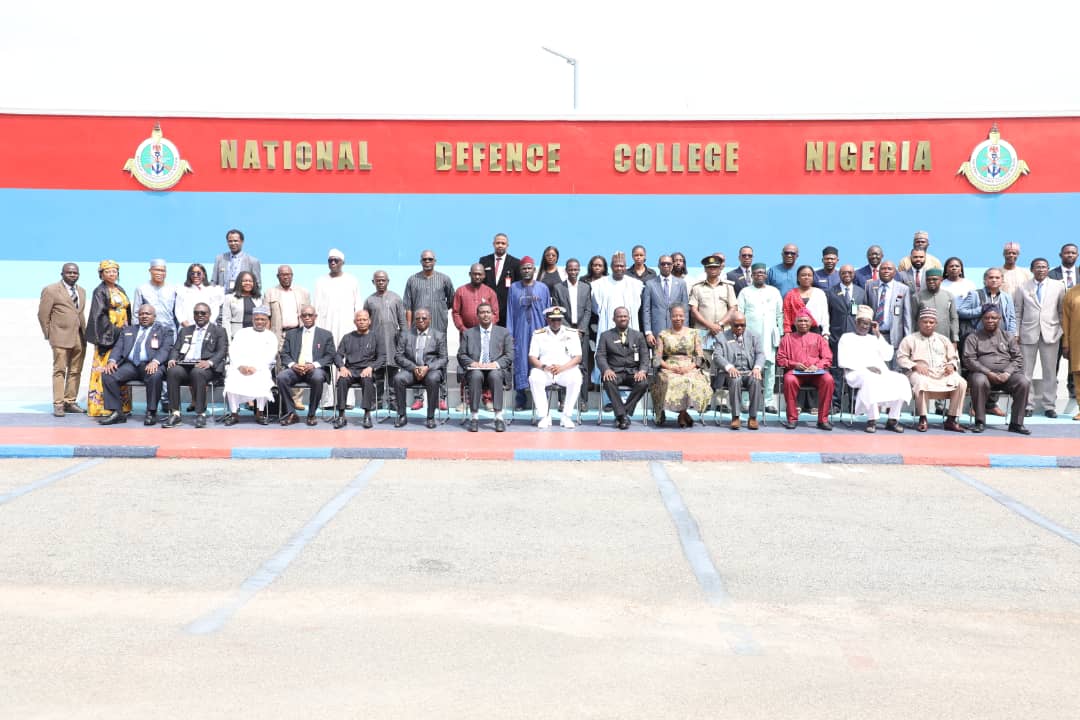•A Comprehensive Analysis of Implications for Security
Senator Iroegbu and Global Sentinel’s team in this article, dived into an insightful analysis that dissects the Sudan crisis, exploring its historical underpinnings, regional impact, and global responses. This comprehensive overview draws from a recent roundtable, where experts converged to unravel the crisis’s complexities. Delving into the crisis’s roots in poor governance and military rule, the discussion sheds light on the dynamics between the Sudan Armed Forces and the Rapid Support Forces. As violence escalates, the urgency of humanitarian intervention is underscored, complemented by recommendations spanning from peace initiatives to bolstering security across the region. Discover a roadmap for addressing the crisis’s far-reaching implications and safeguarding national and regional stability.
Stakeholder perspectives
The persistent crisis in Sudan has inflicted widespread suffering, death, and displacement over the years. The turmoil escalated significantly in April 2023, unleashing widespread conflict and prompting international evacuations. This dire situation carries substantial security and strategic implications for Nigeria and beyond since Sudan shares borders with about seven countries and the Red Sea. Rooted in ethnic tensions, power struggles, and economic challenges, this crisis demands international attention and concerted efforts for resolution.
In light of these critical circumstances, stakeholders within the academia, security, and diplomatic sectors have voiced increasing concerns about the evolving Sudan crisis. They contend that the crisis poses immediate threats to Nigeria’s national security and underscore the urgency for proactive measures by the government. These concerns came to the forefront during a roundtable discussion titled “The Sudan Crisis: Implications for National and Regional Security,” organized by the Centre for Strategic Research and Studies (CSRS) at the National Defence College (NDC) in Abuja. The roundtable aimed to address the ripple effects of years of political and economic turmoil in Sudan, particularly the dire April 2023 crisis that has caused the collapse of various government institutions, thereby endangering regional and global security.
Chaired by Prof. Adam Ahmed, the Provost of NDC, and facilitated by the former Acting Provost and Training Coordinator of CSRS at NDC, Ms. Julie Sanda, this roundtable event garnered participation from a diverse group of stakeholders. Government Ministries, Departments, and Agencies (MDAs), the Military, Academia, the Diplomatic Corps, International Organizations, Non-Governmental Organizations (NGOs), and Civil Society Organizations (CSOs) were all represented.
The discussions at the event delved into key topics such as the background of the Sudan crisis, African and global responses, as well as its implications for national and regional security. Dr. Victor S Akran highlighted Sudan’s historical context leading to the current crisis, Prof. Warisu O Alli discussed responses from Africa and the world, and Amb AO Enikanolaiye and Prof. AM Ashafa shared insights on the implications of the crisis on security.
Stakeholders expressed deep concern that the Sudan crisis could exacerbate the influx of illicit Small Arms and Light Weapons (SALW), illegal migrants, and criminal elements across Nigeria’s porous borders. To mitigate these potential threats, stakeholders strongly recommended the deployment of advanced technology and increased manpower for bolstering border management. Additionally, they stressed the importance of Nigeria learning from the crisis, ensuring the empowerment of non-state actors without compromising national security. This, they believe, warrants a comprehensive review of Nigeria’s foreign policy to underscore unity as a core value while prioritizing citizen well-being and security.
While advocating for Nigeria’s active engagement in resolving the Sudan crisis and assuming a more proactive role through the African Union Peace and Security Council, stakeholders urged the speedy implementation of the AU Roadmap and IGAD’s comprehensive peace plan. Emphasizing that the crisis finds its roots in decades of governance challenges dating back to the colonial era, stakeholders noted Sudan’s attachment to military authoritarian rule. They attributed the current crisis to the strained relationship and power struggle between the Sudan Armed Forces (SAF) and the Rapid Support Forces (RSF) following the 2021 military coup.
The RSF’s push for immediate integration into the Sudanese armed forces clashed with the SAF’s preference for gradual integration, reflecting differing perspectives on national development and foreign policy. Notably, the SAF’s affinity for China and Russia contrasted with the RSF’s alignment with Western powers such as the US, UK, Saudi Arabia, and the UAE. This discord resulted in ruthless violence against civilians and widespread destruction, compelling the evacuation of foreigners, including Nigerians. The turmoil triggered internal displacement and forced thousands into refugee status.
Despite the efforts of the African Union, the sub-regional organization IGAD, and the United Nations, appeals for ceasefire and humanitarian intervention have faced limited success. Stakeholders strongly recommended the establishment of a mediation process between the warring Sudanese factions. They further emphasized the importance of funding the AU Peace Fund and drafting a Security Sector Reform plan for Sudan, ensuring the integration of RSF into the SAF.
To secure Sudan’s territorial integrity and discourage foreign intervention, the AU, UN, and other key stakeholders were urged to play an active role. The roundtable discussions made it evident that the Sudan crisis is a complex issue, rooted in historical, political, and cultural dynamics, necessitating a multifaceted approach. The recommendations presented by stakeholders are a call to action for the international community, particularly African nations like Nigeria, to work collaboratively toward resolving the crisis, restoring stability, and safeguarding regional security.
Global response
Prof. Warisu O Alli’s Insight
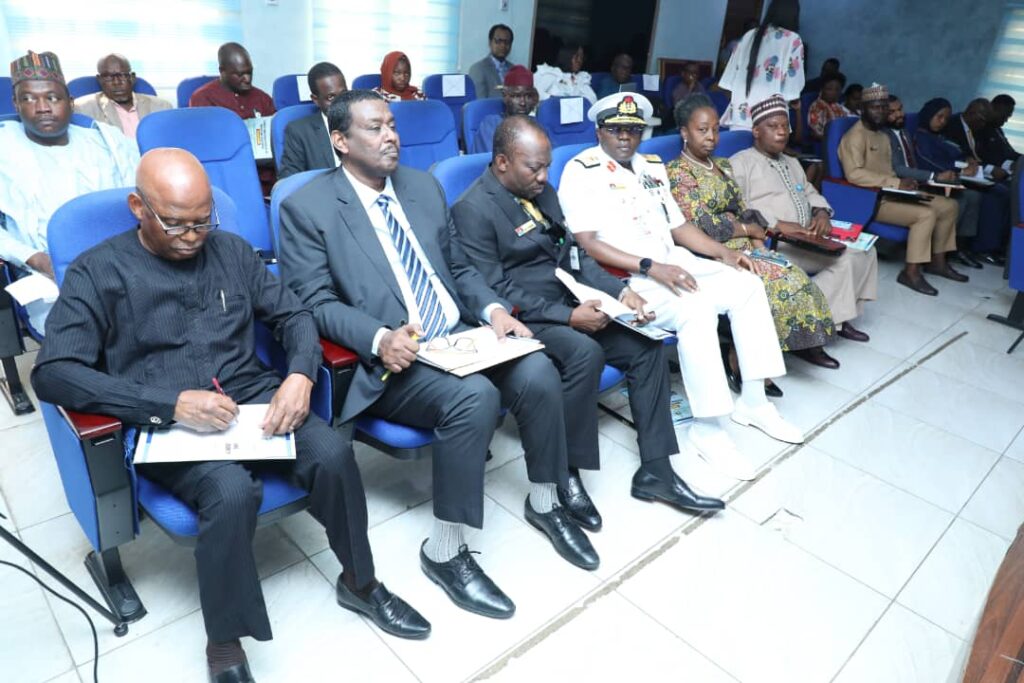
The Sudan crisis has garnered international attention, prompting a multifaceted response from the global community. Prof. Warisu O Alli, an expert in African and Global Responses to the Sudan Crisis, sheds light on the efforts undertaken to address this dire situation. The crisis, characterized by civil strife, displacement, and violence, necessitated diplomatic initiatives and humanitarian aid on an unprecedented scale.
Alli emphasizes the pivotal role played by the AU in responding to the crisis. The AU’s response has been characterized by firm condemnation of the violence, a call for ceasefires, and active advocacy for political dialogue. This approach underscores the AU’s commitment to achieving a coordinated international response and facilitating a transition toward civilian-led governance. The AU’s emphasis on political solutions over military actions reflects the organization’s dedication to sustainable peace.
The Intergovernmental Authority on Development (IGAD), comprised of eight member countries including Sudan, also took swift action in response to the crisis. IGAD’s response included a call for an immediate ceasefire and the establishment of a committee focused on achieving cessation of hostilities. However, it was the involvement of the United States and Saudi Arabia that yielded significant breakthroughs. Negotiations in Jeddah led to the Jeddah Declaration, which aimed to safeguard civilians and ensure humanitarian access within Sudan.
In parallel, international organizations such as the United Nations High Commissioner for Refugees (UNHCR) and the International Organization for Migration (IOM) extended critical humanitarian aid to address the crisis’s impact. Despite these efforts, the situation escalated, resulting in heightened violence, displacement, and deteriorating living conditions for the Sudanese population. The comprehensive international response focused on securing ceasefires, delivering humanitarian assistance, and supporting vulnerable communities affected by the crisis.
Humanitarian intervention emerged as a driving force, with numerous organizations providing essential aid such as food, medical supplies, and assistance for those affected by the crisis. By July 2023, the dire conditions had left numerous health facilities damaged, infrastructure in ruins, and medical supplies in short supply. The Sudanese population faced a daunting challenge, exacerbated by existing vulnerabilities. This underscored the continued need for international support and aid to address the crisis’s complex ramifications.
Alli delves into the principles of Responsibility to Protect (R2P), which place an obligation on states and the global community to intervene in intrastate conflicts to prevent crimes against humanity, war crimes, and ethnic cleansing. This responsibility takes diverse forms depending on each nation’s interests. China, a permanent member of the UN Security Council, maintains a neutral stance, while Russia has pursued independent interests, including supplying arms and security support to Sudan.
While the international response to the April 2023 crisis in Sudan has been substantial, diverse actors’ distinct motivations highlight the need for enhanced coordination and cohesion among these efforts. The AU aspires to provide an African solution to Sudan’s crisis, but resource limitations hinder full support for its initiatives. To address this, a call is made for clear frameworks that facilitate engagement between international, regional, and sub-regional organizations and the countries affected by the crisis. Such coordination is pivotal in avoiding disjointed interventions.
In conclusion, the global response to the Sudan crisis has encompassed diplomatic efforts and robust humanitarian initiatives. The United Nations, regional bodies, donor nations, and NGOs have all contributed to stabilizing Sudan, protecting civilians, and promoting the transition to an inclusive government. However, given the crisis’s intricate nature, persistent challenges, economic disruptions, and mass displacement, continued international support and collaboration are imperative. Both the AU and the global community should brace for the possibility of an extended and escalating conflict while steadfastly striving for lasting peace, democratic governance, and prosperity in Sudan.
Implications for national and regional security
Insight from Prof. AM Ashafa
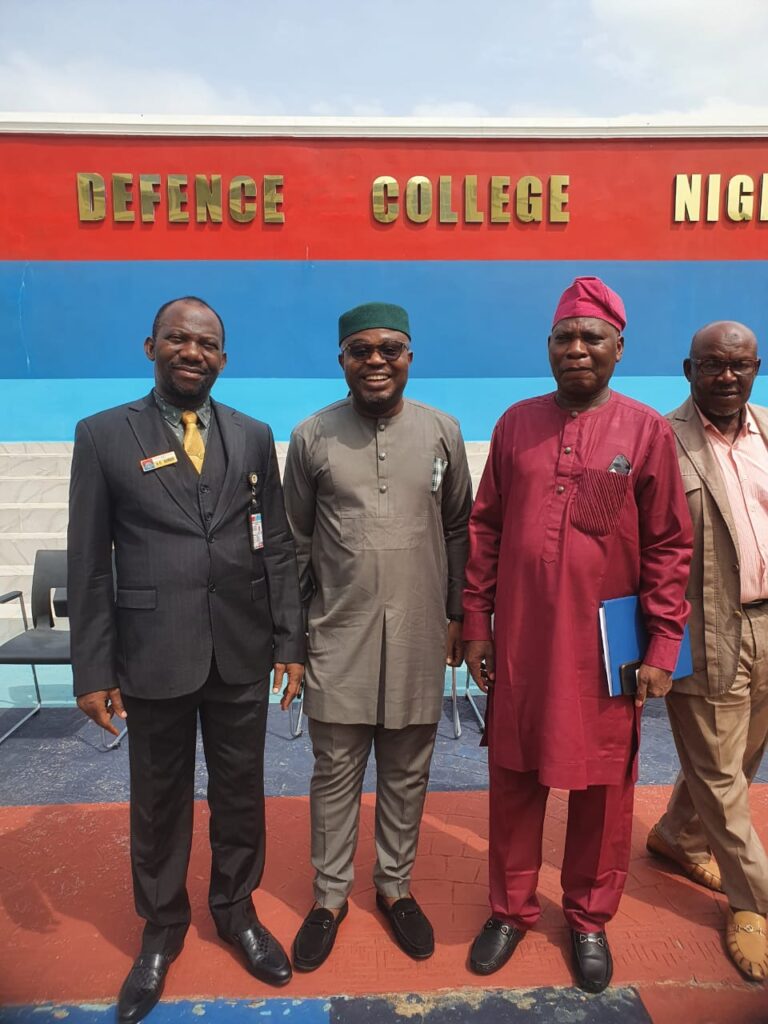
In a comprehensive examination of the Sudan crisis, Prof. AM Ashafa from Kaduna State University delved into its intricate layers, shedding light on its implications for national and regional security. Prof. Ashafa’s analysis encompassed three core dimensions: the historical background, African and global responses, and the wide-ranging implications for security at various levels.
Highlighting the crisis’s roots, Prof. Ashafa pinpointed the pivotal roles played by two rival Generals, Abdel Fattah al-Burhan and Mohammed Hamdan Dagalo (Hamdet). These generals were central figures during the transition from the al-Bashir regime to a transitional sovereign council (TSC), a crucial step toward democratic governance in 2021. However, the dismissal of civilian TSC members by al-Burhan exacerbated tensions, laying bare a power struggle characterized by notions of supremacy, legitimacy, and authority. This conflict takes on an existential magnitude as both factions perceive victory as essential for their survival.
The international and regional arena witnessed a flurry of responses to the Sudan crisis. While Ethiopia offered mediation, global powerhouses including Saudi Arabia, the UAE, the USA, Russia, and China engaged either directly or indirectly due to their vested interests in Sudan. These responses were underpinned by complex motives that span economic, strategic, and political spheres. The African Union (AU) vocalized condemnation of the conflict and advocated for peace, though its efficacy faced scrutiny. The European Union (EU) and United Nations (UN) also joined in condemning the violence while attempting mediation, yet achieving a lasting ceasefire or substantive negotiation proved elusive.
Prof. Ashafa’s analysis underscored that the repercussions of the crisis transcended borders, echoing at national, regional, and global levels. At the national level, Sudan’s transition to democracy and its economy faced disruption due to the conflict. Moreover, the situation left the nation susceptible to proxy wars and increased the risk of extremist ideologies taking root. The regional ramifications were equally grave. Sudan’s instability permeated neighboring countries, leading to potential spillover conflicts, humanitarian crises, and disruptions in trade and security. Additionally, the conflict could impact the dynamics around the Nile River, thus contributing to regional instability. On a global scale, the crisis’s consequences encompassed disrupted trade, economic challenges for trading partners, and the potential surge of refugees. The resulting global challenges ranged from migration and humanitarian aid to the specter of terrorism.
As a neighboring country, Nigeria faces its own set of concerns due to the Sudan crisis. The country must remain vigilant regarding potential repercussions on its stability, including increased migration, spillover conflicts, and economic strain. Prof. Ashafa emphasized the importance of drawing lessons from past crises such as the Libyan conflict and the challenges in the Sahelian region. These lessons should guide Nigeria’s approach to addressing internal conflicts, terrorism, and regional stability. Furthermore, the potential return of Sudanese of Nigerian descent and the necessity of maintaining robust border security should remain on Nigeria’s radar.
In conclusion, Prof. Ashafa’s analysis underscored that the Sudan crisis’s implications were far-reaching, affecting various levels of society. Achieving peace and stability demands collaborative efforts from regional and global actors, emphasizing the need to avert widespread destabilization. As the crisis persists, the global community must navigate intricate challenges, striving to secure peace and security for the Sudanese people and mitigate the cascading effects on neighboring and distant regions alike.
Key takeaways and recommendations
Deciphering the Insights from the Roundtable
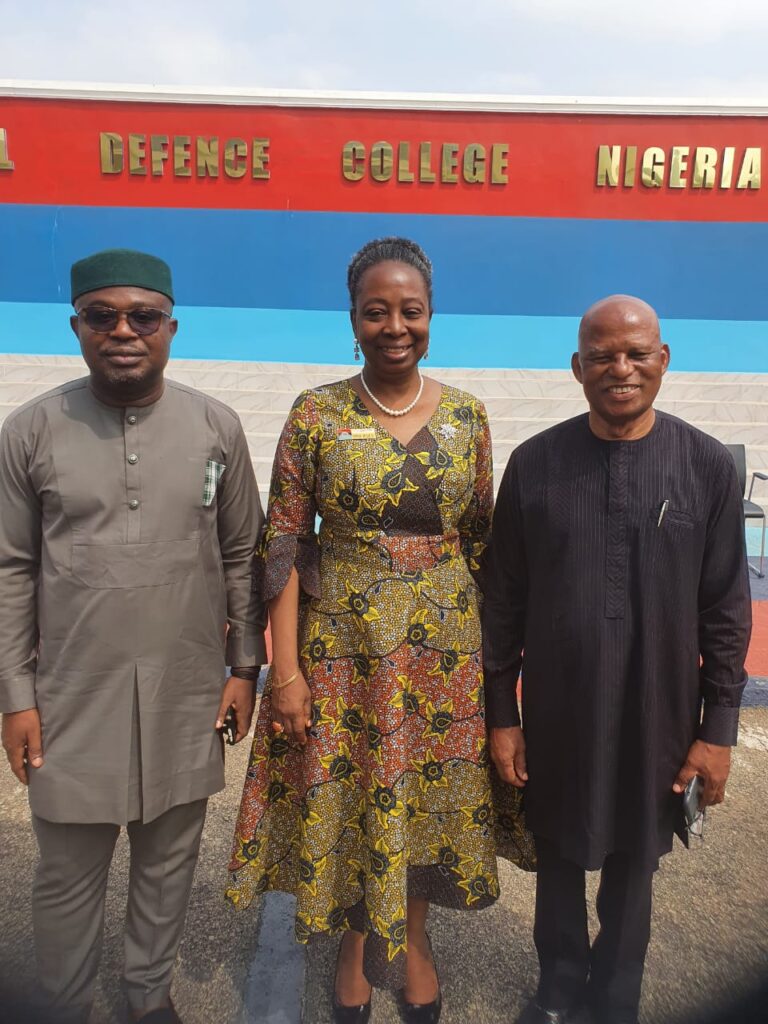
The participants in the roundtable delved deep into the intricate layers of the Sudan crisis, unraveling its historical origins and the prevailing challenges. Their insightful observations offer a roadmap for addressing the crisis and safeguarding both national and regional security.
Unraveling the Roots and Dynamics of the Crisis: The roundtable participants unearthed the historical roots of the Sudan crisis, tracing its genesis to decades of poor governance that can be traced back to the colonial era. Sudan’s historical attachment to military authoritarian rule further compounds the complexity of the crisis. Notably, the nation’s valuable resources have attracted the attention of foreign powers. Moreover, the crisis’s emergence stemmed from power struggles between the Sudan Armed Forces (SAF) and the Rapid Support Forces (RSF) following a military coup in 2021. The ensuing violence perpetrated by these two forces against civilians and infrastructure has led to internal displacement and the creation of a refugee crisis.
Challenges and Call for Humanitarian Action: The crisis has disrupted the trajectory of Sudan’s transition to democratic rule, derailing critical talks and negotiations. Organizations like the African Union (AU), the Intergovernmental Authority on Development (IGAD), and the United Nations (UN) have echoed calls for a ceasefire and humanitarian intervention. However, progress in achieving these objectives has been limited, underscoring the need for urgent and coordinated action.
Way forward
Building on their insights, the participants articulated a set of recommendations that form a comprehensive strategy to address the Sudan crisis and ensure Non-Governmental Sudan and its neighboring nations.
Humanitarian Focus: The urgent priority lies in providing humanitarian assistance to alleviate the suffering of the Sudanese population that is reeling under the weight of violence and displacement.
Roadmap for Restoration: The implementation of the AU Roadmap and IGAD’s peace plan for the restoration of democratic rule in Sudan is a vital step toward establishing stability and fostering inclusivity.
Protection of Civilians: Adherence to the Jeddah Declaration becomes imperative to shield civilians from further harm in Sudan and ensure their safety.
Contributions to AU Peace Fund: Encouraging member nations to contribute to the AU Peace Fund is critical to enable robust humanitarian intervention efforts within the continent.
Security Sector Reform: To foster sustainable stability, a comprehensive Security Sector Reform plan should be developed and implemented, with a particular focus on integrating the RSF into the SAF.
Deterring Foreign Intervention: Preventing external interference in the crisis is vital for the organic resolution of the issues within Sudan.
Empowering Non-State Actors: Drawing lessons from the crisis, empowering non-state actors should be done in such a manner to bolster security without compromising national interests.
Active Engagement in Resolution: Both the AU and other continental bodies, along with Nigeria, should play an active role in mediating between the warring parties within Sudan.
Coordinated Evacuations: Ensuring the safe evacuation of Nigerians from conflict zones should be the responsibility of the Ministry of Foreign Affairs, promoting efficiency and coordination.
Foreign Policy Review: Nigeria should revisit its foreign policy, emphasizing national unity, citizens’ well-being, and security as paramount principles.
Enhanced Border Management: Strengthening border management mechanisms will help prevent the inflow of illicit weapons, illegal immigrants, and terrorists.
Final reflections
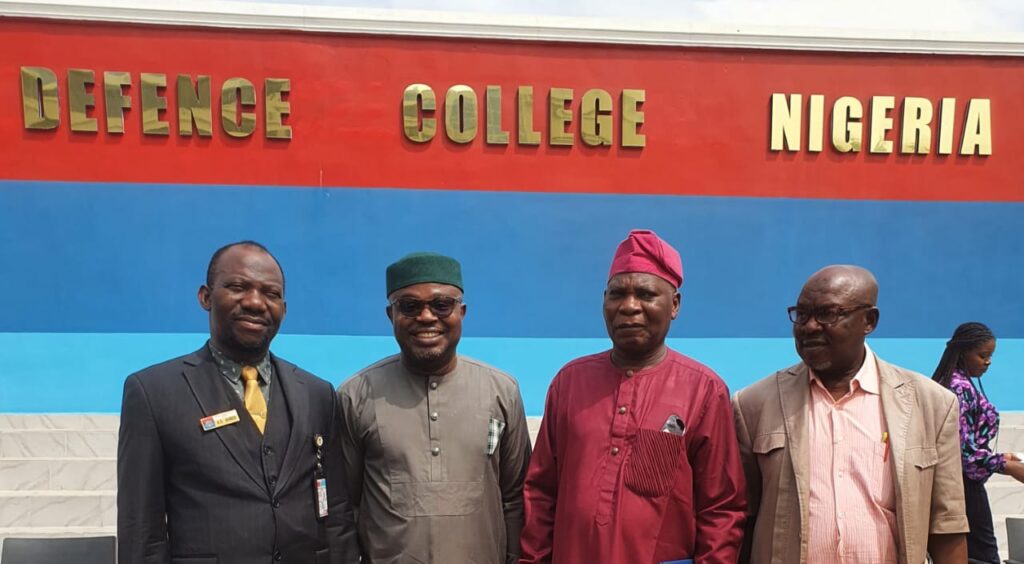
In conclusion, the communiqué paints a vivid picture of the dire situation in Sudan, shedding light on its regional and global ramifications. Urgent humanitarian assistance, backed by diplomatic initiatives and regional cooperation, is the need of the hour. It’s a collective responsibility—nations, organizations, and stakeholders must unite to address the Sudan crisis, forge a path toward lasting peace, and prevent its far-reaching implications from destabilizing not just Sudan, but the entire region.

